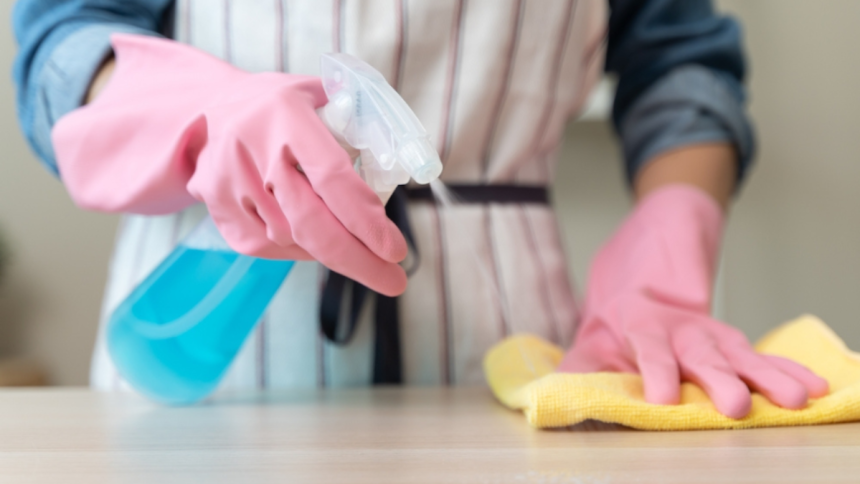Hiring a domestic helper in Singapore can be a significant decision for many households. Whether it’s to help manage a busy family life, care for elderly parents, or simply reduce the burden of daily chores, employing a foreign domestic worker (FDW) comes with both benefits and responsibilities. As an employer, it’s essential to understand what’s legally required and morally expected to ensure a smooth working relationship and a safe, respectful environment.
1. Legal Requirements
Before bringing a maid into your household, you must meet several legal obligations set by the Ministry of Manpower (MOM) in Singapore.
a) Work Permit Application
You need to apply for a work permit on behalf of your helper. This permit allows her to legally stay and work in Singapore. The helper must be between 23 and 50 years old at the time of application and must come from an MOM-approved source country.
b) Settling-In Programme (SIP)
For first-time helpers, the SIP is mandatory. It provides them with essential knowledge about working and living in Singapore, including safety tips and employment conditions.
c) Security Bond and Insurance
Employers are required to purchase a security bond of $5,000 (except for Malaysian helpers) and provide adequate medical and personal accident insurance. This brings us to one of the key components of your responsibilities—ensuring your helper’s health and safety through proper coverage.
2. Providing a Safe and Respectful Work Environment
Domestic helpers are more than just employees; they are individuals who leave their homes to work in a foreign land, often to support their families. As an employer, you are responsible for offering a safe, respectful, and humane working environment.
a) Adequate Accommodation
You must provide your helper with a proper living space—this means a room or area with sufficient privacy, ventilation, and personal storage. A clean and secure space promotes well-being and productivity.
b) Meals and Rest
It’s your duty to ensure that your maid receives sufficient food and rest. She should not be overworked or deprived of rest days. MOM mandates at least one rest day per month, and more are encouraged for overall health and morale.
c) Clear Communication
Language and cultural barriers can lead to misunderstandings. Set expectations early, communicate clearly, and be open to feedback. Mutual respect goes a long way in fostering a positive relationship.
3. Medical Care and Insurance
Employers are responsible for all medical expenses incurred by their domestic helpers during their stay in Singapore. This includes regular check-ups, emergency treatment, and hospitalization if needed. To manage these costs and fulfill MOM requirements, you must purchase:
- Medical Insurance (minimum $15,000/year coverage for hospitalization and surgery)
- Personal Accident Insurance (minimum $60,000 coverage)
This is where the maid insurance promotion becomes relevant. Some insurers in Singapore offer bundled plans that not only meet MOM’s requirements but also come with added benefits like outpatient coverage, wage reimbursement during hospitalization, and emergency repatriation. It’s wise to compare packages and look out for promotional offers that give you better value for your money.
4. Managing Finances and Salaries
It’s your responsibility to pay your helper’s salary promptly each month and keep a proper salary record. You may also want to set up a bank account for her or use digital payment tools for transparency.
a) Levy Payment
The foreign domestic worker levy is a monthly fee imposed by the government, payable by employers. You may qualify for a concessionary rate under certain conditions, such as having a young child or elderly parent in the household.
b) No Unauthorized Deductions
You’re not allowed to deduct any costs from your helper’s salary unless it’s legally permitted (e.g., salary advances or compensation for damage, which must be agreed upon).
5. Rest Days and Recreation
Helpers are entitled to at least one rest day per month. Many spend these days meeting friends, attending community activities, or simply taking time for themselves. Respecting this right helps prevent burnout and builds trust.
Some families worry about their helper’s whereabouts on rest days, but open communication and setting mutually agreed boundaries can help maintain peace of mind for both parties.
6. Termination and Repatriation
If you decide to end your helper’s employment, it’s your duty to give reasonable notice, settle all outstanding payments, and arrange for her return home, including the cost of the air ticket.
It’s important to handle termination professionally and respectfully. If the situation is due to misconduct or incompatibility, consider mediation through the employment agency or MOM channels before taking drastic steps.
Final Thoughts
Being an employer of a domestic helper in Singapore involves more than just delegating tasks—it requires legal compliance, empathy, and ongoing communication. Ensuring your helper feels safe, respected, and supported will not only help her perform better but also contribute to a more harmonious household.
From work permits to maid insurance promotion plans that offer extended coverage, every detail matters in fulfilling your role responsibly. As with any professional relationship, success lies in mutual understanding and fair treatment.
Lynn Martelli is an editor at Readability. She received her MFA in Creative Writing from Antioch University and has worked as an editor for over 10 years. Lynn has edited a wide variety of books, including fiction, non-fiction, memoirs, and more. In her free time, Lynn enjoys reading, writing, and spending time with her family and friends.










